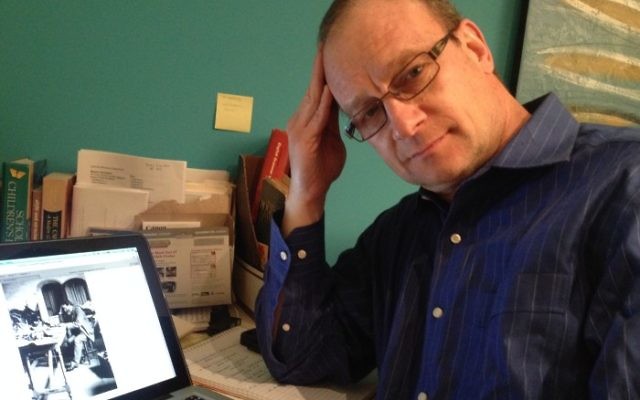Old Times Not Forgotten; Don’t Look Away
By Dave Schechter / dschechter@atljewishtimes.com
When I was growing up near Chicago, Jewish boys did not aspire to live in the South.
Scary things happened in the land of cotton, things that made for grim headlines and gruesome photographs. Bad things happened in the North, too, but the view looking south was foreboding.
Had Atlanta not been the headquarters of the news network we hired on with in Jerusalem, we likely would not have moved here.
Not long after we arrived 28 summers ago, my mother came to visit. Seeking to show her something Southern, we drove to Stone Mountain and rode the train around the park.
During the narration about the site’s Confederate memorial, my Iowa-bred and -educated mother, with her Ivy League master’s degree in history, asked in a conversational tone of voice, “Don’t these people know they lost that war?”
After checking to see if anyone had heard her, I replied that based on my then-brief exposure to the region, some doubt remained on that question.
I have been immersed in another period while working on an article for the Atlanta Jewish Times about the legacy of the Leo Frank case. Aug. 17 is the centennial of Frank being hanged in a Marietta woods (after being kidnapped from the state prison in Milledgeville) — the best known, if not the only, lynching of a Jew in the United States.
Standing near the site of the lynching, along a forgettable (save for the “Big Chicken”) stretch of Roswell Road where it intersects Frey’s Gin Road, it is difficult to imagine the scene a century ago.
There are no historical markers. Two that Rabbi Steve Lebow of Temple Kol Emeth affixed to a nearby building in 1995 and 2005 were removed when the building was razed. Lebow continues to campaign for permanent recognition at the site and an official exoneration of Frank.
A 1986 pardon did not declare Frank innocent in the 1913 killing of Mary Phagan, a 13-year-old worker at the National Pencil Co. factory in Atlanta, where he was the superintendent. The pardon was granted “in recognition of the state’s failure to protect the person of Leo M. Frank and thereby preserve his opportunity for continued legal appeal of his conviction, and in recognition of the state’s failure to bring his killers to justice, and as an effort to heal old wounds.”
Studying the Leo Frank case was quite an education.
I learned that the lynch “mob” was well-organized by leading citizens of Marietta, some of whose descendants today are prominent in Marietta and Cobb County.
I learned of the courage displayed by Gov. John Marshall Slaton in commuting Frank’s death sentence to life imprisonment.
I found a Jewish community heavily composed of transplants who, not unexpectedly, may lack awareness of the case and its traumatic aftereffects. As Linda Selig put it, “There are fewer people now with historical roots to the Atlanta Jewish community, even though they’re now Atlantans and they’re Jewish.”
I found a community of no single mind about how to remember this uncomfortable piece of its past. A century later, many Atlanta Jews still balance living in the larger gentile world with openly displaying their religious identification.
I also found a deplorable number of websites that review the saga of Leo Frank and Mary Phagan using anti-Semitic tropes and disproven canards.
There remain lessons to be learned from the Leo Frank case. One is that not only history, but also present-day events do not allow Atlanta’s Jews the luxury of looking away and pretending that old times have been forgotten.
Dave Schechter is a veteran journalist whose career includes writing and producing reports from Israel and elsewhere in the Middle East.





comments